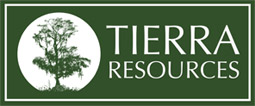How do wetland carbon offset projects work?
When Mississippi River Delta wetlands are restored, the new methodology can be applied to calculate the amount of carbon dioxide and other greenhouse gas (GHG) emissions the rebuilt wetlands will absorb over time. Included in the calculation are the emissions avoided by slowing the rapid loss of existing wetlands throughout the region. This methodology enables the generation of carbon credits, which can be sold to companies that want to offset greenhouse gas emissions.
Our team of wetland and carbon finance experts works directly with landowners to determine if their property qualifies to receive carbon offset credits, the number of carbon offset credits they can expect to receive each year, and the current market value of their carbon offset stream. If a project is deemed to be financially feasible, Tierra Resources secures funding to have a project developed and approved, manages the implementation of the wetland restoration practice, and, in conjunction with the landowner, determines when and how to sell the wetland carbon offset credits. Revenue from carbon credit sales covers costs of project development and is shared between Tierra Resources and the landowner.
How can landowners benefit from wetland carbon offset projects?
Tierra Resources works with landowners to design, implement, and fund wetland restoration projects. Depending on the scale of the wetland restoration needed for your property Tierra can help fund a restoration activity and potentially provide a continual revenue source for your property.
Tierra provides the following potential benefits:
a. Professional input on your property’s potential for wetland restoration.
b. Wetland restoration of your land at little or no cost to you.
c. Revenue from the sale of wetland carbon credits
d. Additional environmental and potential economic benefits from wetland restoration, such as improved wildlife habitat and property value.
e. A better understanding of environmental crediting policies for wetlands and steps for developing a commercial carbon project.
f. Improving your wetland property increases the sustainability of the region at large.
What does the landowner commit to?
Landowners commit to a specific wetland restoration activity for a period of 40 years. During this time period, a landowner must agree not to participate in activities that will damage the restored wetlands. Activities that involve the use of natural resources within the project boundary that do not lead to wetland degradation are permitted, such as hunting, fishing, and the harvesting of alligators and their eggs. Landowners retain all mineral rights. Controlled burning is allowed; however, timber harvesting for wood products is not.
How much does the sale of carbon credits assist in offsetting the cost of the wetland restoration activity?
Depending on the specific wetland restoration activity, carbon credits may fund the entire project. If a project requires significant capital expenditures, carbon finance can be leveraged with other state and federal programs to implement a project.
What types of wetland restoration projects are eligible?
Approximately 4 million acres of fresh-to-saline wetlands in the Mississippi River Delta are eligible for restoration under the wetland carbon credit methodology that Tierra Resources developed. Most of these acres are in Louisiana, but wetlands in the Mississippi River Delta that extend into Mississippi and Texas also qualify. Projects must be actively restoring wetlands in order to be eligible. Wetland restoration projects already underway may also be eligible for carbon credits, but all projects must be voluntary – that is, the wetland restoration work must not be required by existing laws or regulations. All projects will measure carbon benefits based on the methodology and must undergo third-party verification in order to receive carbon credits.
How can I be involved in a wetland restoration carbon offset project?
To learn if your property meets the eligibility criteria or to find out how to participate in a wetland restoration carbon offset project, contact Tierra Resources. Landowners can schedule a one-on-one meeting with Tierra Resources to determine pre-eligibility with no cost or obligation.
What is the wetland carbon offset credit project development process?
1. Landowners can schedule a one-on-one meeting with Tierra Resources to determine pre-eligibility
a. If the property meets eligibility criteria, landowners interested in considering a wetland carbon project can partner with Tierra Resources to identify priority wetland restoration practices and evaluate the project’s financial feasibility.
b.If feasible, the landowner commits to a 40-year project term to begin the carbon project.
2. Tierra Resources manages the implementation of wetland restoration practices leading to the removal of CO2 from the atmosphere and other environmental benefits.
3. Wetland carbon sequestration will be monitored over time and periodically verified by a third party certifier, which includes several site visits for measurements.
4. Following each successful verification, carbon credits are issued to the project and can be sold through the carbon market.
5. Revenue from carbon credit sales covers costs of project development and is shared between Tierra Resources and the landowner.
What types of entities purchase carbon offset credits?
Currently our wetland carbon offset credits are only available through voluntary carbon markets. Most entities that purchase voluntary carbon offset credits do so under corporate social responsibility. Examples of companies that purchase voluntary carbon offsets include Patagonia, Walt Disney, and General Motors.
How is Tierra Resources different from other groups involved in wetland restoration?
Tierra Resources specializes in wetland restoration and carbon offsets, and are considered the industry leaders in blue carbon. Tierra Resources is a nationally recognized innovator and quality leader in the research, development, and monetization of blue carbon contained in coastal wetland ecosystems, such as estuaries, mangroves, and salt marshes. Our pioneering work is critical to bringing wetland carbon offsets to carbon markets. Tierra Resources provides scientific, financial, regulatory, and eco-asset development advisory services for landowners, corporations, nonprofits, and government entities that seek to mitigate the effects of climate change through blue carbon. We provide technical analysis on carbon impacts of wetland restoration, sustainable infrastructure, climate change adaptation, and opportunities for climate mitigation.
Learn more about wetland carbon offset projects and carbon credits.





